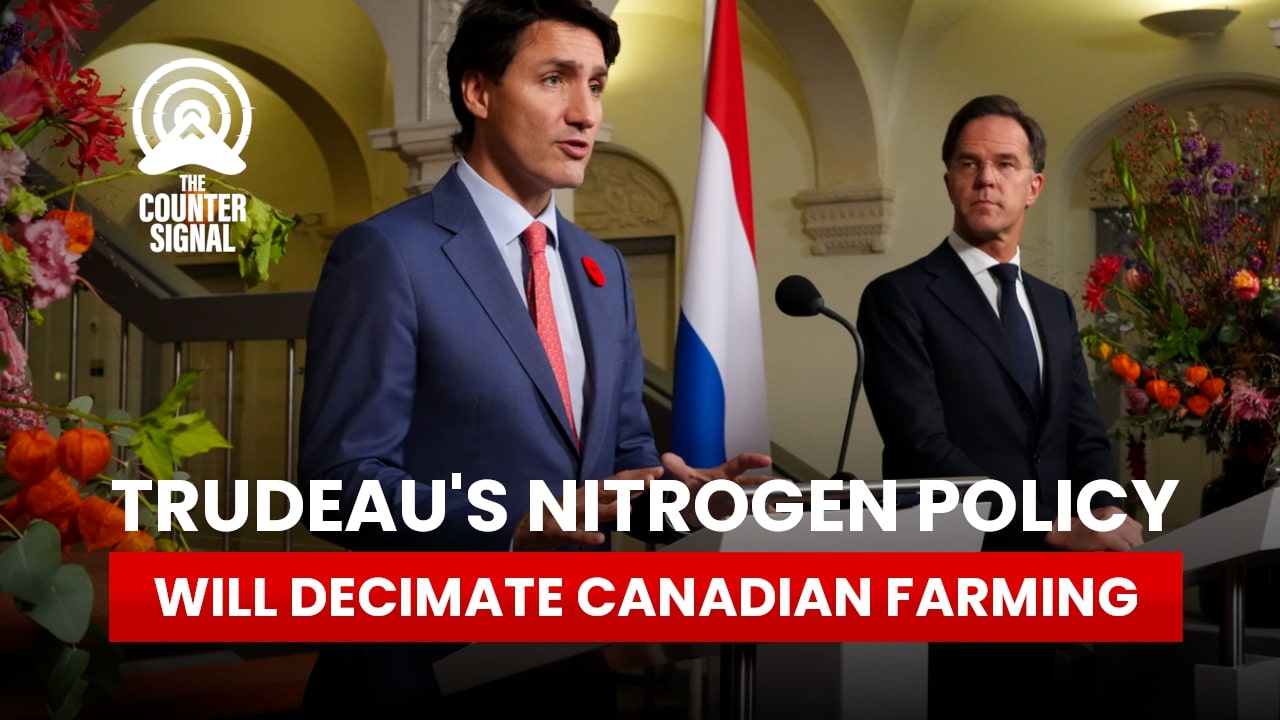Trudeau’s Nitrogen Policy Will Decimate Canadian Farming
In December 2020, the Trudeau government unveiled their new climate plan, with a focus on reducing nitrous oxide emissions from fertilizer by 30% below 2020 levels by 2030.
“Fertilizers play a major role in the agriculture sector’s success and have contributed to record harvests in the last decade. They have helped drive increases in Canadian crop yields, grain sales, and exports,” a news release from Agriculture and Agri-Food Canada reads.
“However, nitrous oxide emissions, particularly those associated with synthetic nitrogen fertilizer use have also grown significantly. That is why the Government of Canada has set the national fertilizer emissions reduction target, which is part of the commitment to reduce total GHG emissions in Canada by 40-45% by 2030….”
This is a tacit admission that any attempt to lower admissions by reducing nitrogen fertilizer will consequently lower crop yields over the next decade, hurting the Agriculture sector and, more importantly, hurting farmers.
Devin Dreeshen: What’s happening to Dutch farmers, Trudeau is doing to Canadians
And indeed, according to a report from Fertilizer Canada:
Total Emission Reduction puts a cap on the total emissions allowable from fertilizer at 30% below 2020 levels. As the yield of Canadian crops is directly linked to proper fertilizer application this creates a ceiling on Canadian agricultural productivity well below 2020 levels….
It is estimated that a 30% absolute emission reduction for a farmer with 1000 acres of canola and 1000 acres of wheat, stands to have their profit reduced by approximately $38,000 – $40,500/ annually.
In 2020, Western Canadian farmers planted approximately 20.8 million acres of canola. Using these values, cumulatively farm revenues from canola could be reduced by $396M – $441M on an annual basis. Wheat famers could experience a reduction of $400M.
Moreover, Fertilizer Canada doesn’t believe that forcibly decreasing fertilizer use will even lower greenhouse gases but could lead to carbon leakage elsewhere.
Nonetheless, Trudeau’s government is moving forward, with farmer’s groups speaking to Farmers Forum now wondering if he’s intentionally trying to cause a food shortage — which Trudeau previously told Canadians to prepare for.
“We’ve seen from the global pandemic to the war in Ukraine significant disruptions of supply chains around the world, which is resulting in higher prices for consumers and democracies like ours, and resulting in significant shortages and projected shortages of food and energy in places around the world,” Trudeau said.
“This is going to be a difficult time,” he continued, “because of the war, because of the recovery from the pandemic. And Canadians will do what we always do: we’ll be there for each other.”
Of course, reducing nitrogen emissions released by fertilizer crucial to the survivability of the agriculture sector isn’t the only target of Trudeau’s government. Every part of the economy has been negatively impacted by Trudeau’s climate agenda.
On April 1 — the same day he gave himself a raise — Trudeau decided to go ahead and jack up the carbon tax by an additional 25%, consequently increasing the price of practically everything.
As Alberta MP Shannon Stubbs wrote at the time in an article for The Counter Signal:
The Liberal government is hiking the tax-on-everything carbon tax while Canadians struggle like never before with skyrocketing prices for essentials like food and fuel, heating, and housing….
Of course, the Liberals claim the carbon tax is “revenue neutral.” Whether for governments or for Canadians, that’s just not true. The independent, non-partisan Parliamentary Budget Officer calculates the GST collected on carbon taxes at more than $200 million each year, which goes straight into government coffers. Years ago, Conservatives tried to end this tax-on-a-tax, but the Liberals wouldn’t budge.
Since boosting the carbon tax, gas prices have soared to over $2.00 per litre across Canada, with one Liberal candidate saying that the “silver lining” is that Canadians will be priced out of driving.
And as with other problems facing our crumbling economy, Trudeau doesn’t appear to be taking any actions to remedy it — unsurprising, as so often he is the root cause.
Source: The Counter Signal




